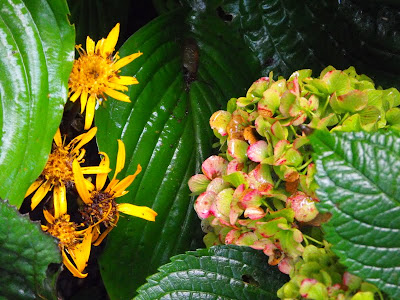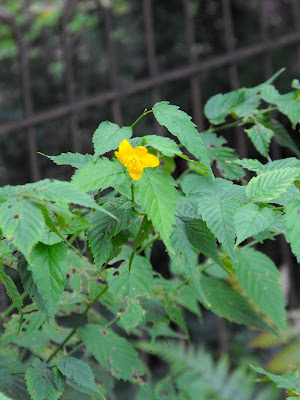One of the joys of going abroad is the opportunity (if not traveling with others familiar with you) to be someone else. To be an other. Alienation metamorphs into a form of liberation: no longer are we a "this" or a "that," no longer do our local identities supersede our national identity but rather the reverse. Abroad, we become the aggregate: the American.
This is not an identity we assume on our own. No. The identity is ascribed to us. The question, "where are you from?" may elicit the response, "near Philadelphia," but that specificity is greeted with a generality: "Ah, you are
American."
And that's where things get interesting. No longer is your identity a product of you. No longer are you on your playing field, able to define your self. No. You are on "away turf" (if that's the sports terminology, I really have no clue) and you play by their rules which often stem from a metaphor or stereotype.
In Asia, I am met by surprise because I am not "huge," or "fat" or "a monster." In Europe, I elicit a modicum of commentary that "I'm not rude" or "loud." (Though I do speak English "with an American accent" and that is code for Europeans to stop your tortured attempt to speak their language and speak on your terms.)
Alienation abounds, on many levels and in many senses, and it is in many senses fun.
Being away from one's garden for 4 weeks at the height of gardening season is another adventure in alienation, and often not a good one.
I returned to my gardens that seemed not my own.

Sure, you ask people to water (or rely on natural rainfall), but no one tends to your garden like you do. (And, in American interest of fairness, why should they? The garden, after all, isn't theirs. Crass? Yes. Rude? Probably. Honest. You betcha.)
Of course there are blooms you missed while away, and some things may pass their prime while others come into their own.
But, if it rained, especially heavily and / or often, then mulch gets displaced, and plants topple, and tree branches fall and splinter garden plants, and possums and raccoons cause damage, and cats dig poop holes (sometimes on top of smaller plants), and, and, and...
And the whole affair looks like a damn mess.
I have come to realize that my career gives me time during the summer to travel (and do all the writing and research that I did not have time to do during the school year), and thus during my prolonged periods of absence I may lose a plant or two--usually small ones, usually ones I recently transplanted, because those are the ones that require that extra care that substitute garden-caregivers do not or cannot give (nor would you expect them, or ask them, to give it, unless you are willing to dish out more money).

But whole shrubs?
I am perplexed why two of the three
Pieris japonica bushes in the Buddha bed died. Completely died, their branches dessicated and browned, brittle as dried bones. The one that might have died (its leaves are speckled, which gives me cause to think it may be a bit diseased) is the only one to have survived. The others, save for suffering from a few broken lower branches thanks to possums, seemed otherwise healthy.
My lantana, once enormous, a thriving mass of blooms and greenery, has been reduced to a few thick woody stems and, thankfully, some new growth, after the pruning of all that was dead (which was most of it).
Lemon Drop Hosta?
It now looks like this, thanks to an outbreak of
Sclerota rolfsii.
It's all very disconcerting and certainly alienating.
But gardeners pick up the pieces--one cannot lament too long, especially with the possibility of frost descending upon us in 6-8 weeks.
So to overcome the alienation I feel from my own garden, I went to the garden center today to scout potential replacements for the Buddha bed. And this is the only benefit of gardening's inevitable losses: you get to redesign and rethink garden spaces, especially when we face the big losses.
But purchase I could not. Why, despite the fact that I found many plants on which to spend a few hundred dollars?
Well, dear reader, because the mother-in-law is here, and she already thinks I spend too much money on things. If she happens to come across the prices of plants, well now, I would experience a whole new level of alienation.
 We celebrate the harvest, reap the bounty of our spring and summer toil, return to school to bathe in knowledge, witness metamorphic coloration, welcome that "temperate sharpness" as Keats described the air to a friend (perhaps in preparation for his ode, "To Autumn"), and festoon our bodies with layers and swaths of cloth (a luxurious panoply of wools and cottons and silks painted in seasonal hues, tempered by checkered patterns).
We celebrate the harvest, reap the bounty of our spring and summer toil, return to school to bathe in knowledge, witness metamorphic coloration, welcome that "temperate sharpness" as Keats described the air to a friend (perhaps in preparation for his ode, "To Autumn"), and festoon our bodies with layers and swaths of cloth (a luxurious panoply of wools and cottons and silks painted in seasonal hues, tempered by checkered patterns). 



































